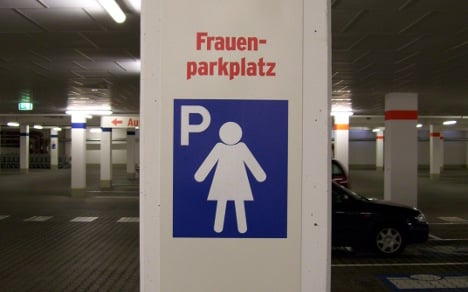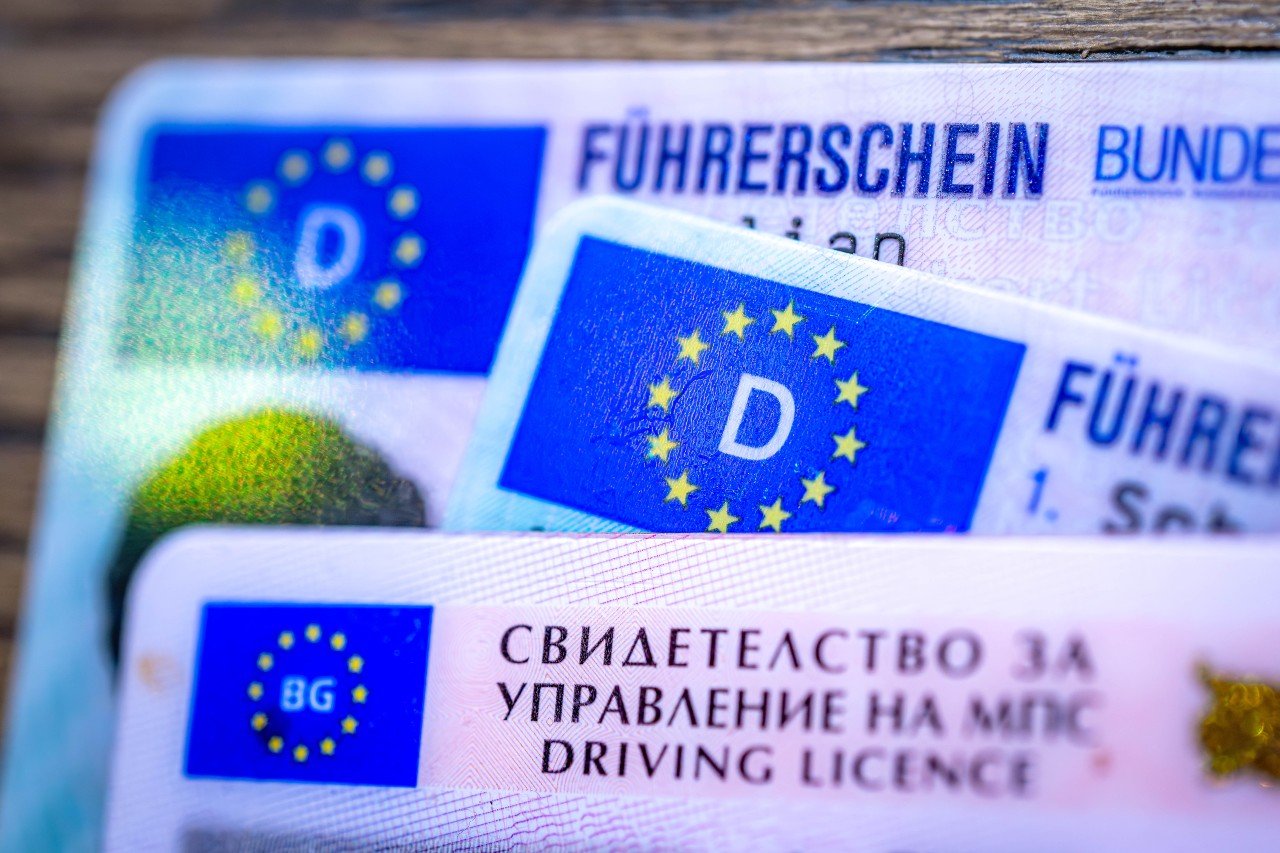Frankfurt Airport has a special announcement for female drivers on its website. Want to bag yourself a parking space that's “bigger, nicer and close to the terminals”? Well, you'd better reserve your place in one of the airport's 'Ladies Parking' areas.
These reserved spaces are “colour-coded and easy to find.”
Germany's main air hub is not alone in this practice. In some states it's a legal requirement that as many as 30 percent of parking places are designated for female drivers.
“It's very patronizing for women to be singled out in this way,” Geraldine Herbert, editor of Wheels for Women magazine told The Local in reference to parking spaces being advertised as wider.
“All this does is reinforce the stereotype that women are bad at parking.”
Instead of these “sexist parking spaces,” Herbert said, parking spaces in general should be made larger, “as many are simply too small for modern cars.”
A safe space for women
The idea of women-only parking places in Germany originated in the 1990s, when it wasn't so much women's convenience that was up for discussion – but their safety.
Women felt at risk from sexual assault in underground car parks, it emerged – and as part of a policy to reduce this sense of risk, special parking spaces were introduced.
The spaces were near to car park exits, well-lit and often under video surveillance.
Nowadays, regulations for women's parking spaces differ from state to state across Germany. Whereas in Brandenburg 30 percent of spaces must be designated for women, in Hesse – where Frankfurt is the largest city – it is 5 percent.
Yet women aren't forced to use the specified spaces – and there's nothing in the German traffic code that prevents men from using these spaces too.
'Men are better at parking'
But, in 2012 a Black Forest mayor caused controversy when a new car park opened in the town of Triberg.
Alongside women's parking spaces, the new car park also included spaces specifically for men – which were harder to maneuver into.
Mayor Gallus Strobel explained the decision as natural, claiming that men were simply better at parking than women.
“We found that two places were not rectangular, at an angle to the road and placed between walls and pillars,” he told Der Spiegel. “This makes parking difficult so we decided to allocate them to men.”
Again, though, the gendered parking wasn't legally stipulated – and women were welcome to try and use the men's spaces, Strobel said.
Frankfurt Airport meanwhile defended itself against charges of discrimination.
“Hessian garage regulations stipulate that at least 5 percent of public car park spaces must be specified women's spaces,” a spokesperson explained in an email to The Local. “And we have more than fulfilled this quota.”
It's up to the female drivers themselves whether or not they use these spaces, she added.
“We have extremely high security measures across our car parks, which we have made even higher in these designated female spaces – through brighter lighting, quick access to exits and extensive CCTV surveillance.”
“The measures we have taken do make female drivers feel safer in our car parks, and add to the quality of customers' stay here.”
“Both our male and female customers also expect us to provide such parking spaces,” the spokesperson added, “so in our view they're necessary.”
An ongoing debate
The German Automobile Association (ADAC) echoed the view expressed by Herbert that parking should be made safe and convenient for both genders.
“We believe that in car parks, every parking space should be a “women's” parking space,” they told The Local.
“This means making sure every space and stairwell is well-lit, avoiding blind spots and corners and installing sufficient electronic security systems – most importantly, video surveillance and emergency call systems.”
The creators of women-only parking in Germany may have had safety in mind – but some still see these gendered spaces as unacceptable.
Reporting by Hannah Butler




 Please whitelist us to continue reading.
Please whitelist us to continue reading.
Member comments